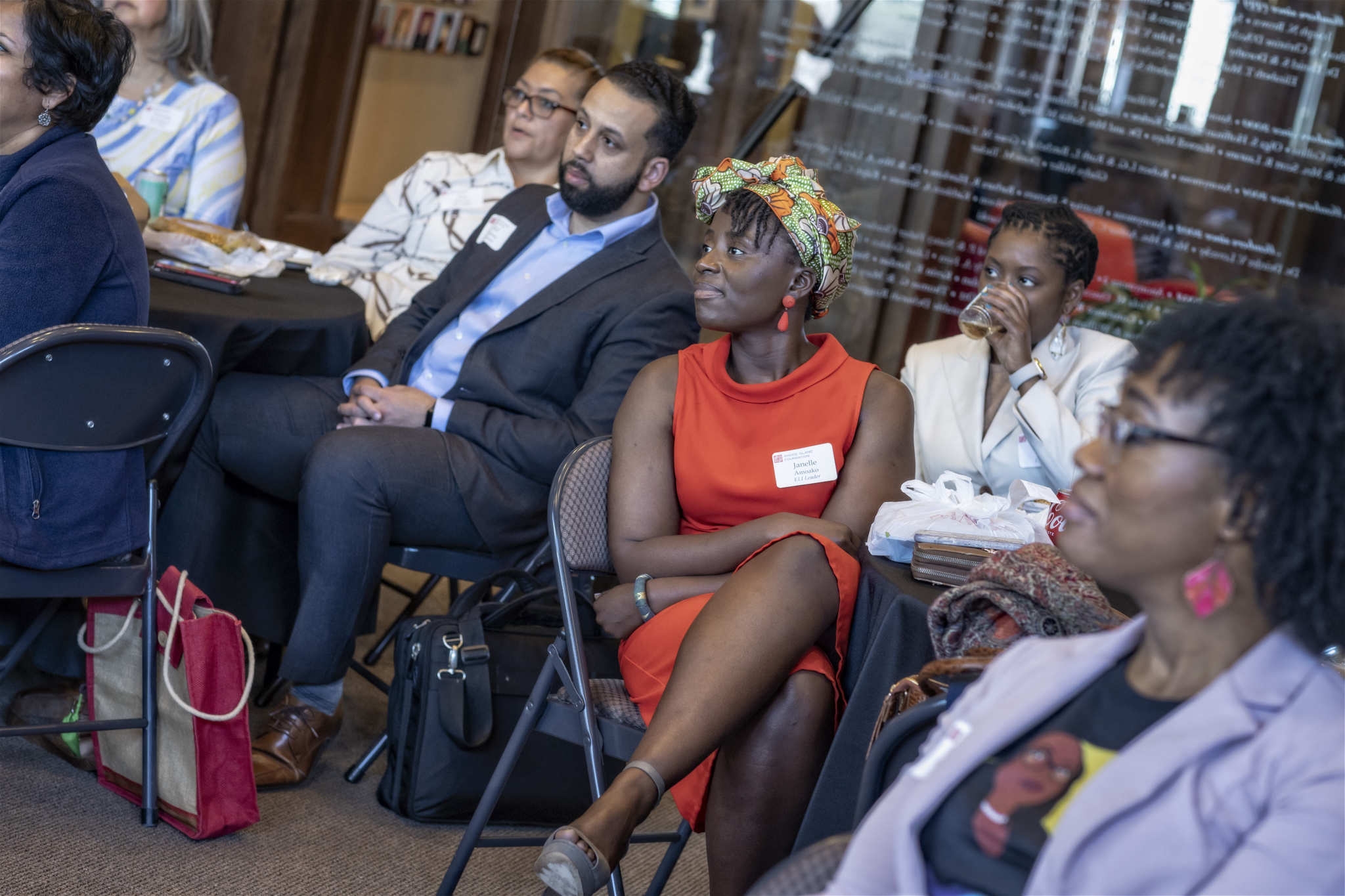
Civic Leadership
The road to equity is long—we will get there one step at a time
The Foundation’s Equity Leadership Initiative sees success in its inaugural year
The results are in: Rhode Island Foundation’s Equity Leadership Initiative (ELI) has surpassed expectations. How, you may ask, does one measure the progress of an initiative with goals as ambitious and intangible as the ELI’s? In short—one person at a time.
The goal of the ELI is to cultivate, mentor, and seek access for individuals who identify as Black, Hispanic or Latino, Indigenous, Asian, and multiracial from across sectors to build a pipeline of leaders of color in positions of influence in Rhode Island.
To accomplish this, a cohort of rising leaders meet monthly for a year, with staff readily available for consultation in between meetings. Trainers and presenters help members with their development, and, if requested, leaders are invited to share their work and engage in critical discussion to establish more equitable ways of working. The participants also have coaches to strengthen and strategize their personal growth.
For example, at their November 2022 session, the cohort was vulnerable and supportive as Trainer and Associate Professor Phitsamay Uy took them through an intercultural identity development exercise.
“This work is hard,” Uy said. “Life is hard. So when you are taking up space, or creating space, you have to take into account that this is a part of our lives in the United States. Why are you surprised I speak English so well? Even as people of color, we cannot assume we share the same experience. How should we act together? How do we see each other?”
Together, they developed and agreed to an accountability pledge of community norms to hold each other to. The norms included: assume positive intent, listen to understand rather than to respond, and lean into conflict to learn.
This is just one piece of a puzzle that has proved to be very effective.

Six of the first cohort members were recognized with awards and distinctions; six received promotions within their organizations; eight have accepted new job offers or have started new businesses. These achievements are invaluable steps toward a more diverse and equitable professional landscape. This first year has taught us that if you intentionally provide the support, network, and resources for leaders to thrive, change happens. Equity doesn’t just happen; we all must actively work to create it.
Time will tell, as the second cohort is already underway.
“We’re speaking with action,” President and CEO Neil Steinberg said. “Money is part of it, it always is, but we have unparalleled influence in different areas, and we want to use it.”
How to leverage the Foundation’s influence is a recurring topic of discussion throughout the year. As executive director of the program, I advised them to fully commit to their journey and be selfish with focusing on their personal development. Throughout the year, trainers challenged the participants to disrupt current systems and eliminate barriers, balance vulnerability with upward mobility, and to treat self-care as a necessity rather than an option.

It was a safe place for them to speak about issues common to leaders of color and how to deal with, combat, or eliminate the obstacles, pitfalls, stress, and trauma sometimes faced daily in predominantly White spaces. The first cohort learned, among other tools, the effectiveness of having a personal brand, the eight rules of healthy racial comeback lines, how to negotiate with a ‘less is more’ speaking strategy, and the five Ds of bystander intervention.
That cohort is now looking at future cohorts as family.
“This is an opportunity like no other,” said Rosedelma Seraphin, assistant director of the Office of Diversity and Multicultural Affairs at The Warren Alpert Medical School of Brown University, as the first cohort compiled advice for the second cohort. “Absorb as much as you can, ask questions and get ready to grow. You will quickly realize the value of your cohort and the liberating magic of holding space for and with these people… You are worthy of this experience, and more so, do not set limitations on what you can have.”
“The Foundation lifted us and promoted us every opportunity they could,” reflected Ana Barraza, a member of the first cohort and interim director of diversity and outreach at Roger Williams University Law School. “I have to applaud my cohort group also. We did a lot to support and promote each other—constantly lifting each other up without competition for attention and space. Rising tides lift all boats.”
ELI is a critical program from the Foundation’s $8.5 million investment in 2021—above and beyond existing annual funding—to address racial equity, diversity and inclusion. The foundation furthered its pledge to ELI at the first cohort’s graduation when Neil Steinberg announced a $2 million commitment to endow the program and solidify its permanence.



